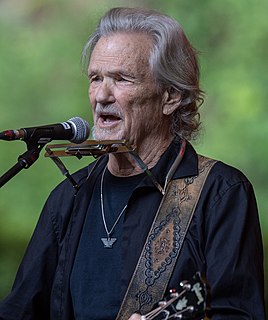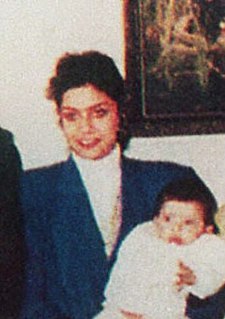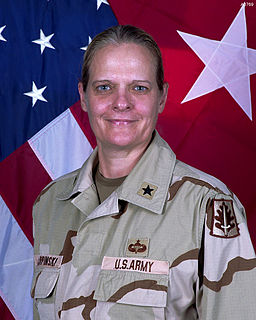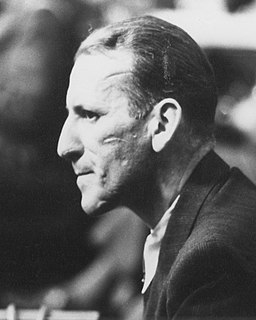A Quote by Spike Milligan
My father being a soldier, every time I saw soldiers marching - 'Well,' I thought, 'my father's that,' and these soldiers were always looking magnificent. And I thought they were powerful; they were all-powerful. I knew that they were an elite in India.
Related Quotes
One day as Father and I were returning from our walk we found the Grote Markt cordoned off by a double ring of police and soldiers. A truck was parked in front of the fish mart; into the back were climbing men, women, and children, all wearing the yellow star. . . . "Father! Those poor people!" I cried. . . . "Those poor people," Father echoed. But to my surprise I saw that he was looking at the solders now forming into ranks to march away. "I pity the poor Germans, Corrie. They have touched the apple of God's eye.
I always tell our community that we should attract the people Jesus attracted and frustrate the people Jesus frustrated. It's certainly never our goal to frustrate, but it is worth noting that the people who were constantly agitated were the self-righteous, religious elite, the rich, and the powerful. But the people who were fascinated by him, by his love and grace, were folks who were already wounded and ostracized — folks who didn't have much to lose, who already knew full well that they were broken and needed a Savior.
After about midday my dad sent cars from his private collection for us. We were told to get in. We had almost lost contact with my father and brothers because things had got out of hand. I saw with my own eyes the [Iraqi] army withdrawing and the terrified faces of the Iraqi soldiers who, unfortunately, were running away and looking around them. Missiles were falling on my left and my right - they were not more than fifty or one hundred metres away. We moved in small cars. I had a gun between my feet just in case.
I saw battle-corpses, myriads of them,
And the white skeletons of young men-I saw them;
I saw the debris and debris of all the dead soldiers of the war;
But I saw they were not as was thought;
They themselves were fully at rest-they suffer'd not;
The living remain'd and suffer'd-the mother suffer'd,
And the wife and the child, and the musing comrade suffer'd,
And the armies that remain'd suffer'd.
We know that there were so many Japanese American soldiers in World War II who were fighting in Europe despite the fact that their families, their parents were back home in American prison camps. It's savagely ironic that between themselves and the African-American soldiers, who were also segregated and didn't see the fruition of the work the culminated in the Civil Rights Act until the '60s, that these American heroes and their stories are not well known; and the fact that the 442nd/100th became the most decorated unit in U.S. history.
When we were making it [Star Wars], none of the effects were in. So the first time, I thought it was, you know, that - I mean, we were surrounded by English crew members that could hardly keep themselves together. They were, "Here comes the guy in the dog suit." They made fun of us, which was OK. But the first time I was sitting in a theater, and I saw all the effects in, and the big ship flew over the audience, and the sound rumbled, I pretty much thought we were close to home.
That's a nice song,' said young Sam, and Vimes remembered that he was hearing it for the first time. It's an old soldiers' song,' he said. Really, sarge? But it's about angels.' Yes, thought Vimes, and it's amazing what bits those angels cause to rise up as the song progresses. It's a real soldiers' song: sentimental, with dirty bits. As I recall, they used to sing it after battles,’ he said. 'I've seen old men cry when they sing it,’ he added. Why? It sounds cheerful.' They were remembering who they were not singing it with, thought Vimes. You'll learn. I know you will.
It's always intrigued me that amidst the group called slaves there were individuals who were extremely able, who were extremely colorful, who were powerful personalities, who by no means fit the usual images of slaves. They were people who, through their personalities and abilities, were very respected in the community where they lived by both black and white.


































